Editor’s Note: FII’s #MoodOfTheMonth for July 2021 is Sustainability. We invite submissions on the diverse aspects of sustainability throughout the month. If you’d like to contribute, kindly email your articles to sukanya@feminisminindia.com
The doubling up of home as workplace and the constraints of movement both physical as well as emotional, as a consequence of the pandemic, often leaves me expunged of the energy to argue nowadays. I look mostly inattentive and bored.
However, this boredom can occasionally be pricked by curiosity, like when, one day, my six year old held out a tired looking tendril, with a leaf or two, in her palm. Its tiny, muddy roots told me it had been pulled out. Why?
She pulled me to the balcony and pointed at the little patch of mud right outside the front gates of our apartment. That she had spotted this tiny plant amidst a jumble of vegetation which thronged the patch was astonishing. But then, children can be utterly bewildering at times, I have learnt
Shouting out incoherent, brisk answers while entrusting the tiny thing in my custody and running to the basin to wash hands, I could see how she had adjusted to this robotic process. Often happy to make soap bubbles, while enjoying a sanitiser drizzle. I sat down thinking I would take some respite from my chores while she gave me a slower, comprehensible reply.
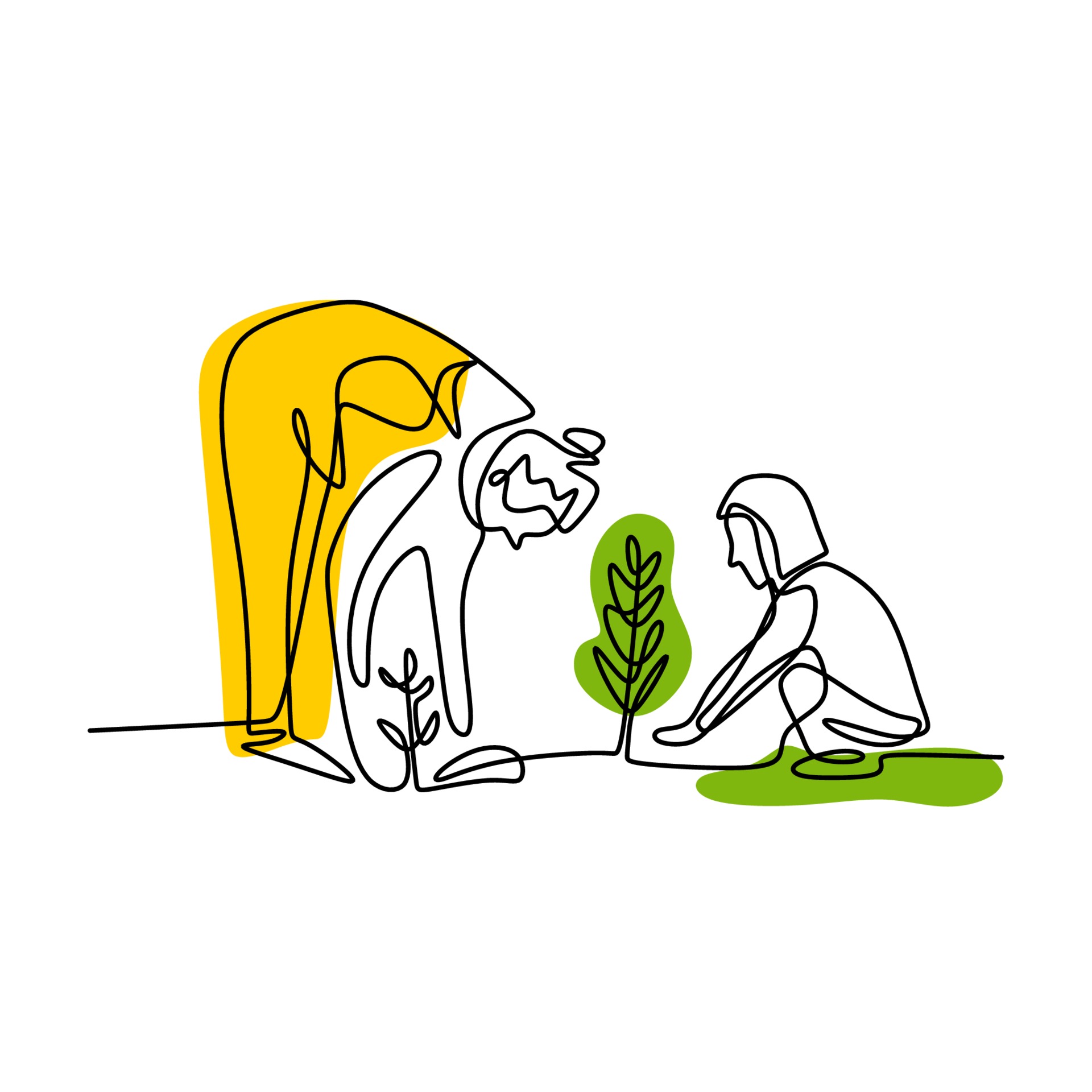
By then, she was already combing through her stash vigorously- a shoebox full of things that had lost grace in an adult’s life. She returned with a tiny, emptied, sparkling glass bottle that once stored fabric colours, poured some water into it, placed the tendril inside, and lovingly held out the entire arrangement on her palm for me to scrutinise.
The tendril hung over the sides of bottle, thankful for the support of the sides. “I saved it,” she announced, brimming like the hero from the cartoons she gorges upon day in and day out. “And how is that?” I questioned, not pleased at having spotted this savior syndrome in her.
“I saw this from the balcony, dashed down, and brought it up,” explained the super-hero. “You pulled it out of the soil, its home,” I waited. “No,” she pulled me to the balcony and pointed at the little patch of mud right outside the front gates of our apartment. That she had spotted this tiny plant amidst a jumble of vegetation which thronged the patch was astonishing. But then, children can be utterly bewildering at times, I have learnt.
Motherhood has taught me to be both desirous and skeptical of silences, especially when a six year old is in the house and has refused the afternoon siesta. I found her in the balcony, squatting in mud. “And what is this now?” I asked, the future prospect of engaging with cleaning up the mess making me quite unenthusiastic. “I am giving it a home, a home in a home,” that it wouldn’t survive without mud had struck her too

“But the soil would have mothered it any how,” I told her. “No, no, it is so small, it would have lost to the other plants there. I will protect it from them.” The performance of charity with a dash of hero-giri has always failed to impress me. However, deciding that my over-worked brain might do better by taking some rest, I let it be. The tiny tendril rested inside the fabric-colour bottle on Pipli’s study desk.
Motherhood has taught me to be both desirous and skeptical of silences, especially when a six year old is in the house and has refused the afternoon siesta. I found her in the balcony, squatting in mud.
“And what is this now?” I asked, the future prospect of engaging with cleaning up the mess making me quite unenthusiastic. “I am giving it a home, a home in a home“, that it wouldn’t survive without mud had struck her too.
I learnt she had spent the afternoon looking for mud. Angry and tried with only cemented pavements around, she had knocked at a neighbor who had plants, and asked for help. My neighbour filled Pipli’s DIY pot made out of an empty bottle of dates, while also giving her gardening tips for gratis.

In our little neighbourhood, located in the outskirts of the town of Siliguri, plants and planting isn’t a rarity. Although spaces are fast filling up, most houses have plants in their courtyards and terrace, while the less fortunate ones use their window sills. Such commonality often makes this culture invisible, until someone displays a conscious vigour in maintaining a garden.
This pandemic has been harsh for children in ways more than one. This truncated childhood that they are living in, has robbed simple joys like talking to a friend, touching them, feeling a presence. I pulled her to my chest, wishing that the small plant wouldn’t be too weary of this burden of expectation
That, however, has not been my case. I have been happy with plants potted and nursed by others, mostly by my mother. I have missed the cool shade of the banyan tree near the sweet shop when my neighbourhood lost its green to make way for development via flyovers, but have never felt myself indulgent enough to take care of plants on my own.
That Pipli has taken up this responsibility, although with her misplaced sense of heroism, intrigues me.
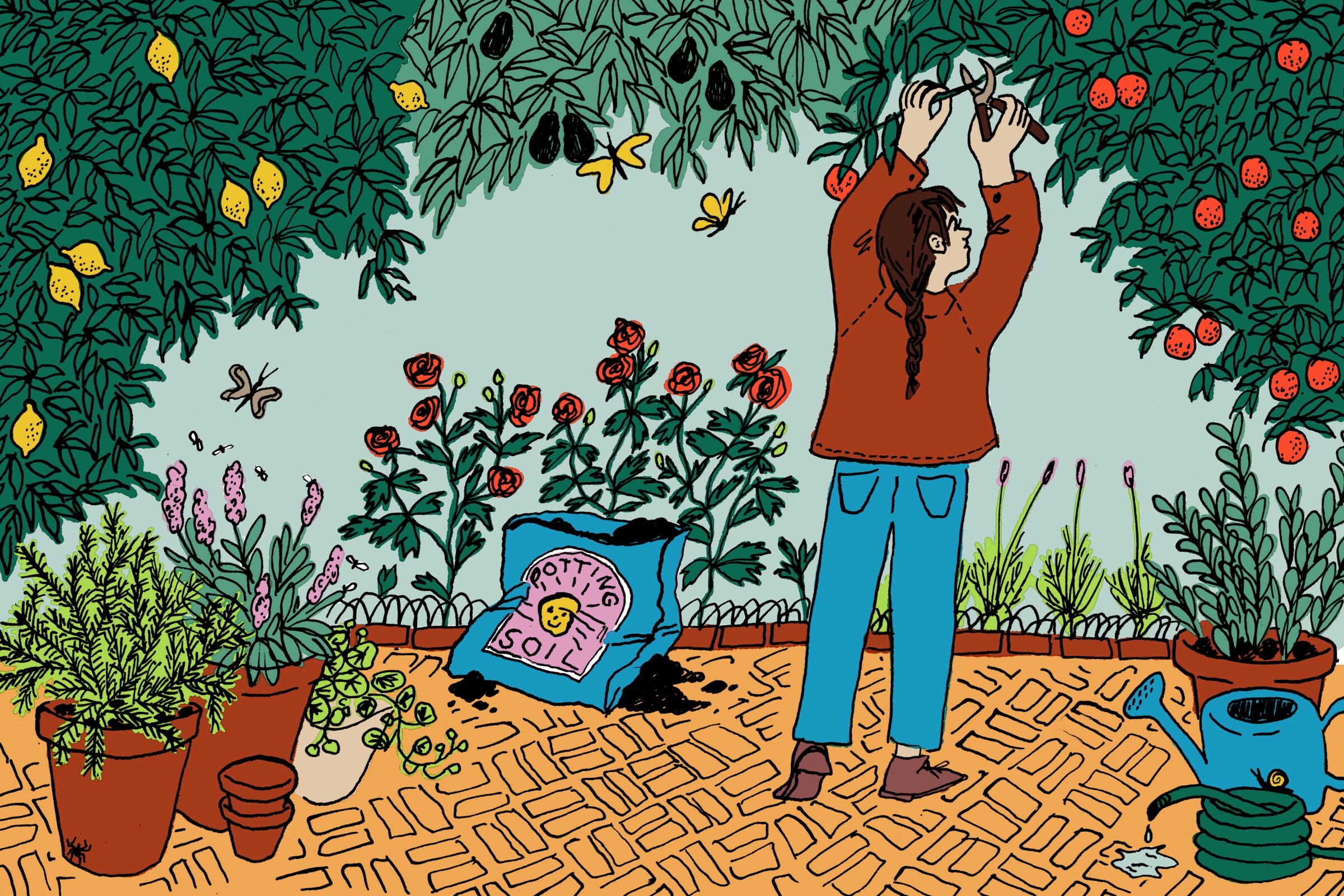
“So, what colour flower would it bear?” “I don’t know,” came the busy reply of the new gardener. While washing hands Pipli spoke of another possibility, “It might have no flowers at all, only leaves, patah-bahar.” I realised our little saviour didn’t bother to go on a character hunting of the rescuee.
As the motive was purely restricted to ‘saving’, it was left just at that. Our night story time brought another revelation. “Maa, do you know how Bolai had found a dear friend in his silk-cotton tree?” I recalled that she had recently read an abridged version of Tagore’s story from her text book. “This one will be my friend.”
I wondered at my never-felt-before enthusiasm. Pipli named her new friend ‘Magic’. It is these small marvels that help build sustenance for the mind, especially when the bigger picture is terribly grim. Empty containers at home turned into pots as nameless plants kept finding room in our home, in our heart
It hit me hard. This pandemic has been harsh for children in ways more than one. This truncated childhood that they are living in, has robbed simple joys like talking to a friend, touching them, feeling a presence. I pulled her to my chest, wishing that the small plant wouldn’t be too weary of this burden of expectation.
Also read: Tweaking Children’s Bedtime Stories For A Better Tomorrow
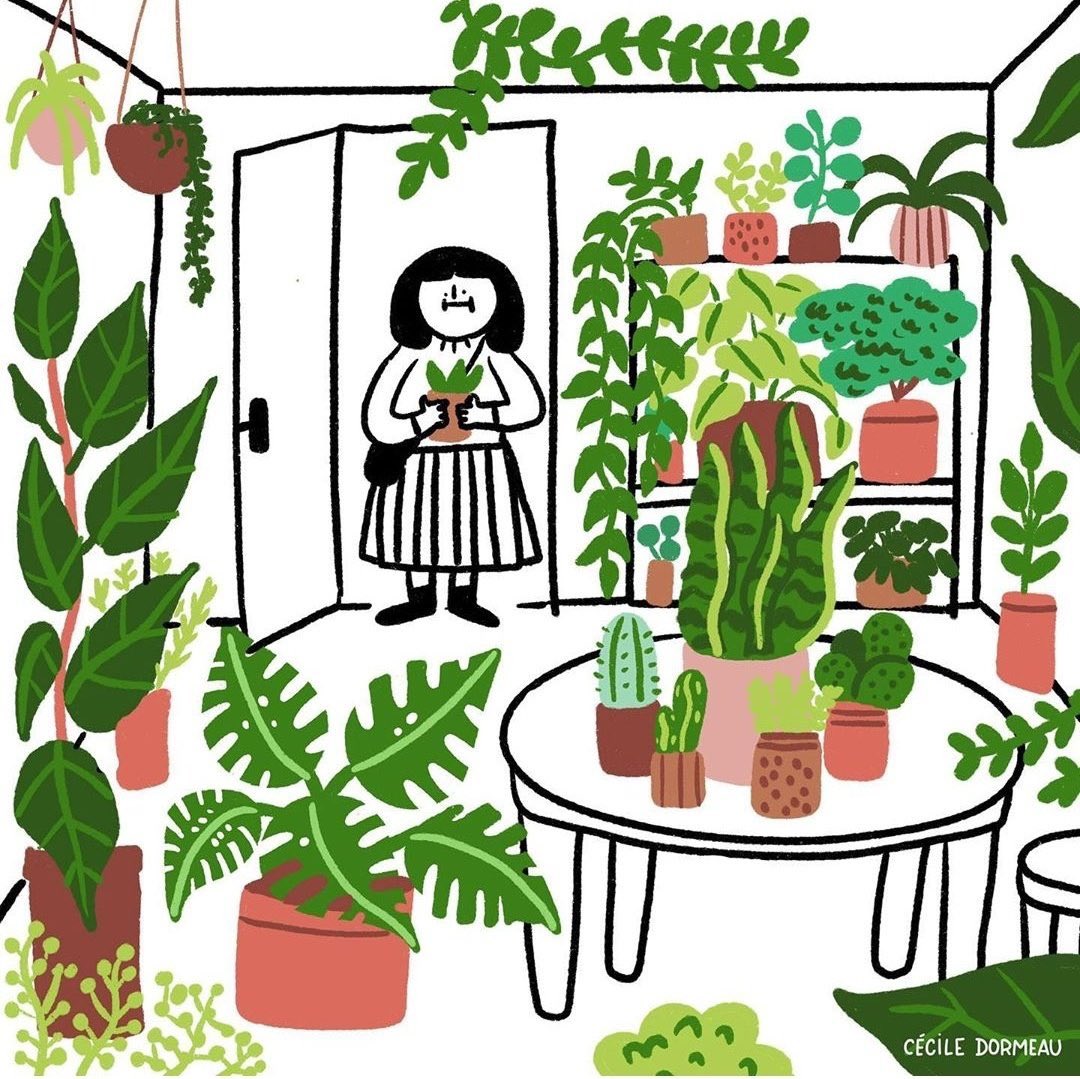
Pipli’s rituals to save her prospective friend went on with great enthusiasm. She watered it before and after online classes, served it with vegetable peels for manure, exposed it to the sun as she had learnt plants could make their own food using sunlight, kept it in shade when she thought enough food was made for a little plant. She observed it every day to spot new growth.
Disappointed that her friend wasn’t being able to keep pace with her expectations, Pipli was heart-broken. I gave her a solution – let it be, let it think if it wanted to live. ‘Think?’. That night I told her about Jagadish Chandra Bose and how he had discovered that plants feel pleasure and pain. They might even be able to decide. Pipli listened, enrapt.

Days passed, our usual lockdown chores went on with news of more cases, more variants, more waves. But there was celebration again – the little tendril, now standing steadily, had oozed out a little leaf – green and tender. It graduated from a tendril to a plant.
“So you saved it,” I said. “Naa, it decided to live. It’s a hero, maa, a fighter,” beamed the little one. She had learnt to give credit, learnt to appreciate strength in others. She thanked our neighbor too. Dancing to sunshine and breeze, fed on rainwater and vegetable peels, our little survivor beamed with life.
I could see it transforming while it transformed Pipli. One morning, my usual morning trip in the balcony brought me a surprise. Turning to the corner to see how Pipli’s plant was doing, I saw a bright pink flower splashed across its green young leaves.
An inexpressible joy overwhelmed me – that joy which rises from somewhere within and seems so filling that, finding no room inside, it just spills out.
I wondered at my never-felt-before enthusiasm. Pipli named her new friend ‘Magic’. It is these small marvels that help build sustenance for the mind, especially when the bigger picture is terribly grim. Empty containers at home turned into pots as nameless plants kept finding room in our home, in our heart.
On silent afternoons, Pipli can still be found in the balcony, busy with her friends, her exasperated online life finding some respite. I listen to their conversation at times thinking of magic, a joyous magic!
Also read: Is Nature Queer? — Challenging Normative Ideas Around Ecology
Featured Image: Ritika Banerjee for Feminism In India
About the author(s)
Priyanka Chatterjee is a mother, researcher, and academic. She lives and writes from Siliguri. Her articles have appeared in Feminism in India, LiveWire, Himal Southasian, Sikkim Express, among others. She can be reached at site.surferpc@gmail.com and is on Instagram @priz_chatt
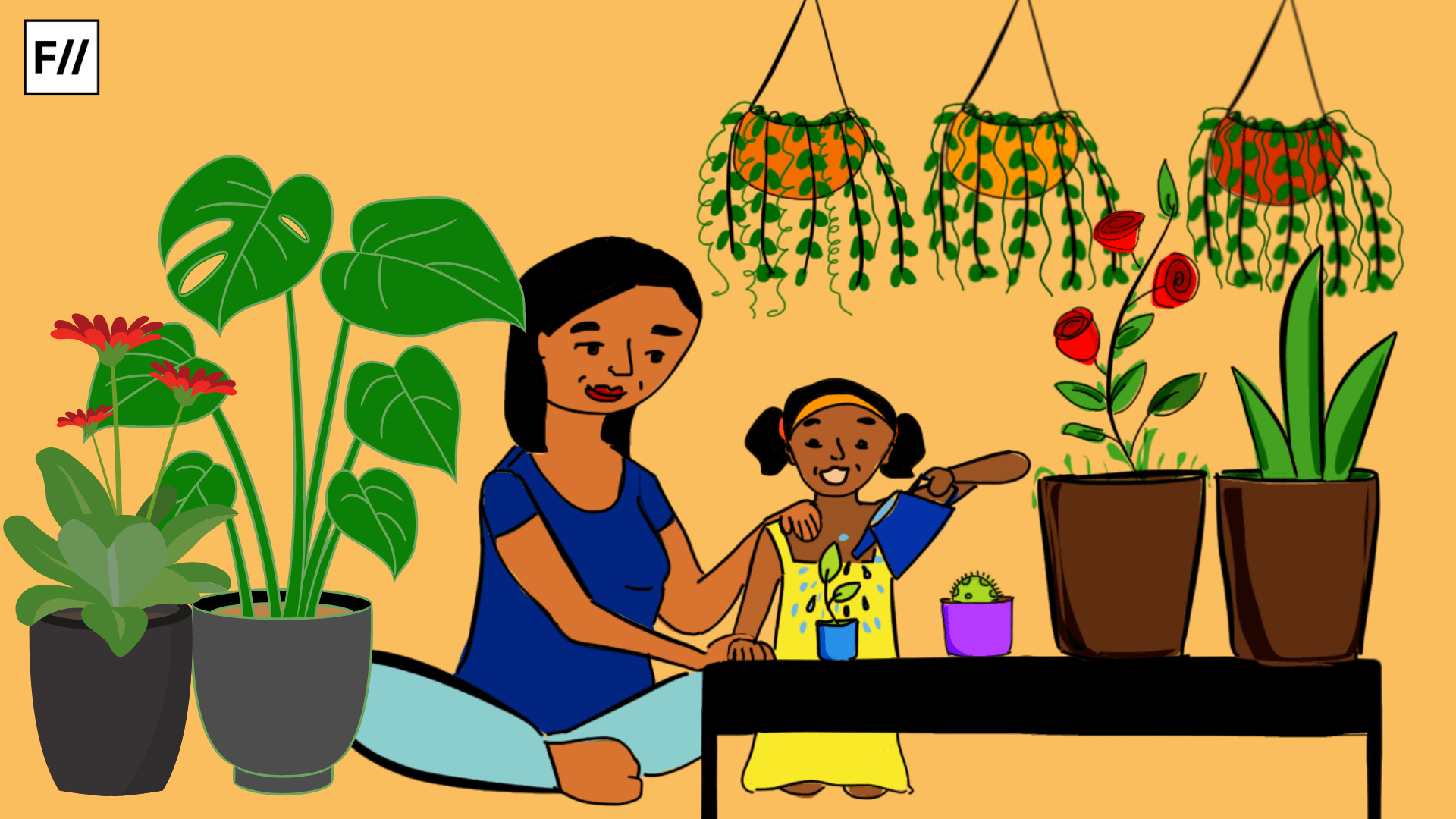


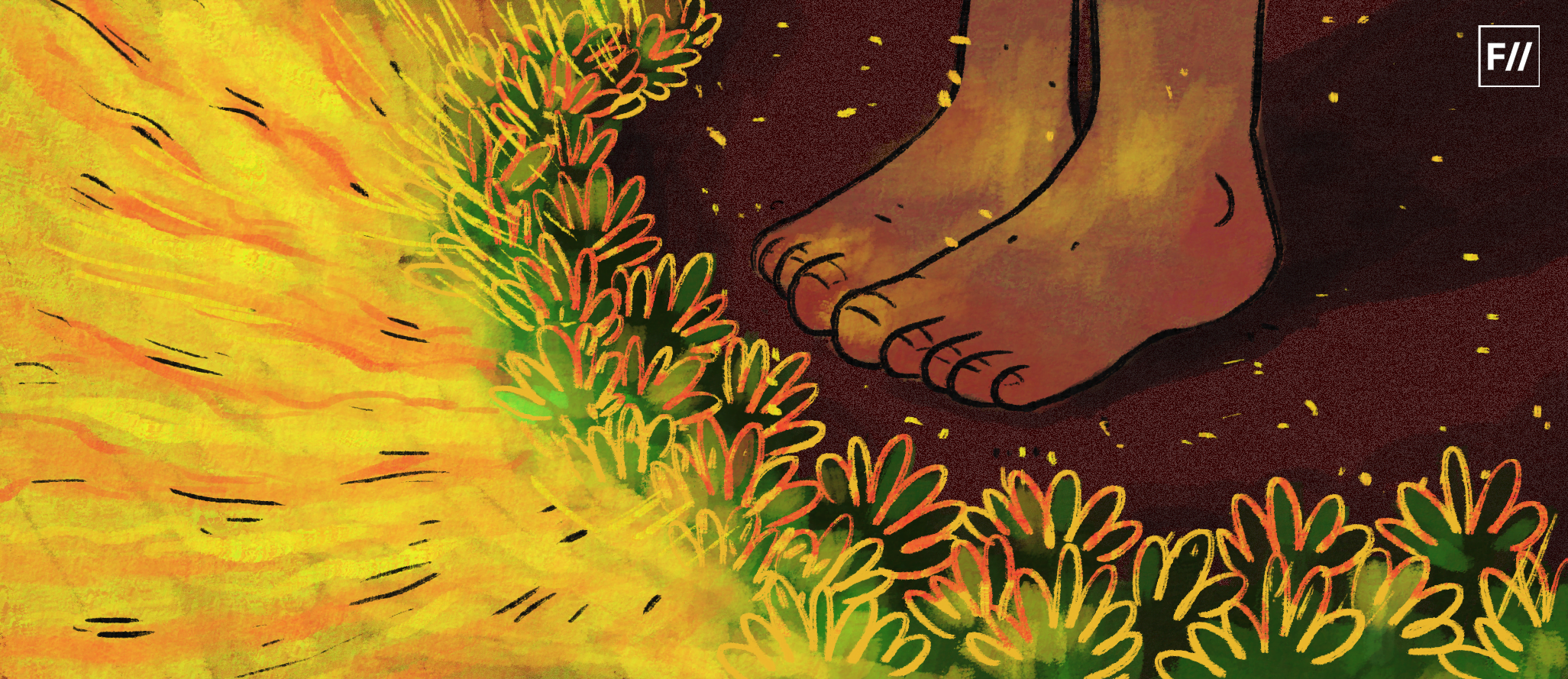


Loved reading it!